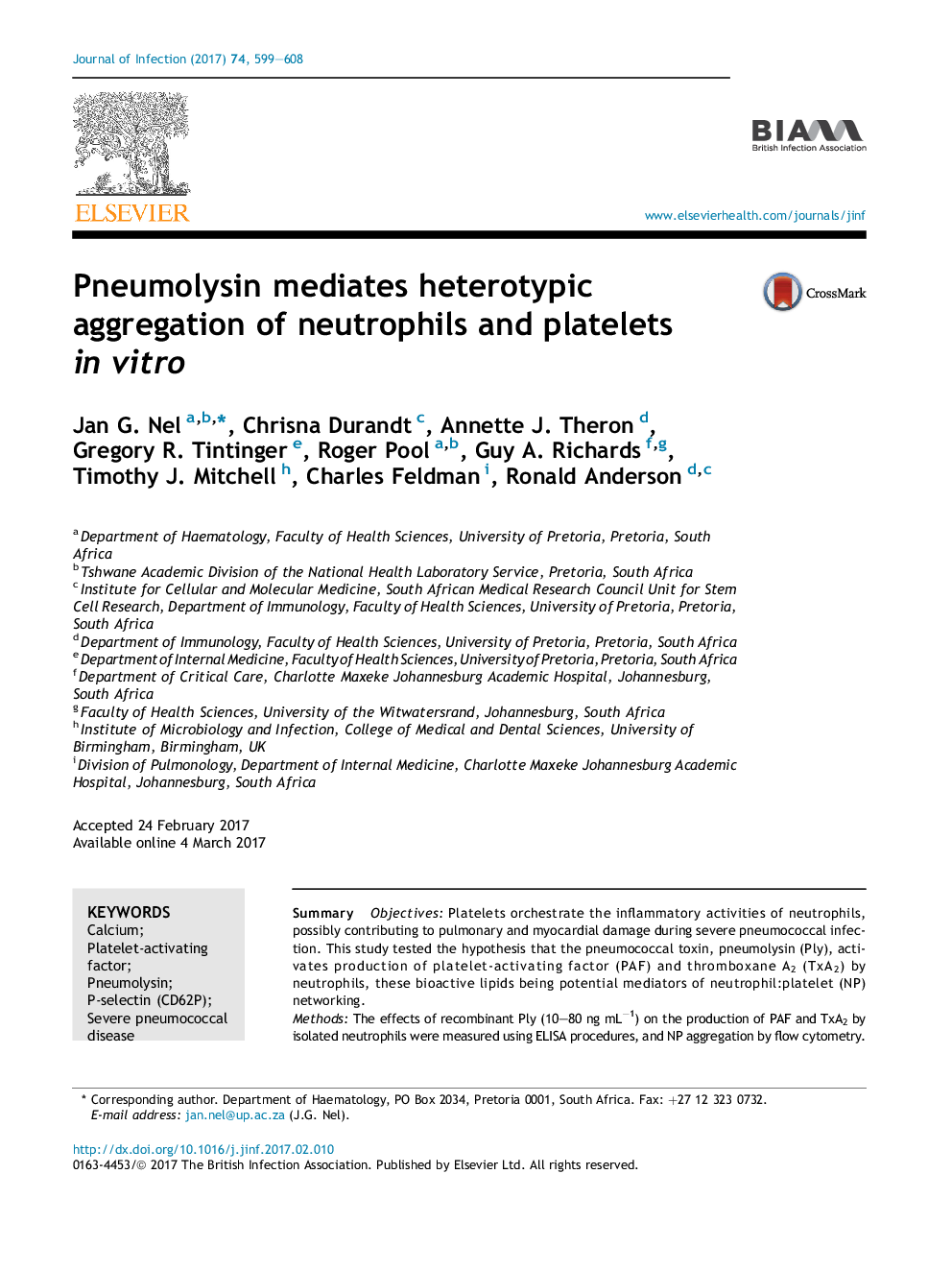| کد مقاله | کد نشریه | سال انتشار | مقاله انگلیسی | نسخه تمام متن |
|---|---|---|---|---|
| 5668598 | 1407908 | 2017 | 10 صفحه PDF | دانلود رایگان |

- Pneumolysin (Ply) activates production of PAF and thromboxane A2 (TxA2) by neutrophils.
- Ply also promotes formation of pro-thrombotic neutrophil:platelet (NP) aggregates.
- Ply-mediated aggregate formation is independent of PAF and TxA2.
- P-selectin (CD62P) and protease-activated receptor 1 are involved in Ply-induced NP aggregation.
- Ply-mediated NP aggregate formation may contribute to pulmonary and myocardial injury.
SummaryObjectivesPlatelets orchestrate the inflammatory activities of neutrophils, possibly contributing to pulmonary and myocardial damage during severe pneumococcal infection. This study tested the hypothesis that the pneumococcal toxin, pneumolysin (Ply), activates production of platelet-activating factor (PAF) and thromboxane A2 (TxA2) by neutrophils, these bioactive lipids being potential mediators of neutrophil:platelet (NP) networking.MethodsThe effects of recombinant Ply (10-80 ng mLâ1) on the production of PAF and TxA2 by isolated neutrophils were measured using ELISA procedures, and NP aggregation by flow cytometry.ResultsExposure of neutrophils to Ply induced production of PAF and, to a lesser extent, TxA2, achieving statistical significance at â¥20 ng mLâ1 of the toxin. In the case of NP interactions, Ply promoted heterotypic aggregation which was dependent on upregulation of P-selectin (CD62P) and activation of protease-activated receptor 1 (PAR1), attaining statistical significance at â¥10 ng mLâ1 of the toxin, but did not involve either PAF or TxA2.ConclusionPly induces synthesis of PAF and TxA2, by human neutrophils, neither of which appears to contribute to the formation of NP heterotypic aggregates in vitro, a process which is seemingly dependent on CD62P and PAR1. These pro-inflammatory activities of Ply may contribute to the pathogenesis of pulmonary and myocardial injury during severe pneumococcal infection.
Journal: Journal of Infection - Volume 74, Issue 6, June 2017, Pages 599-608